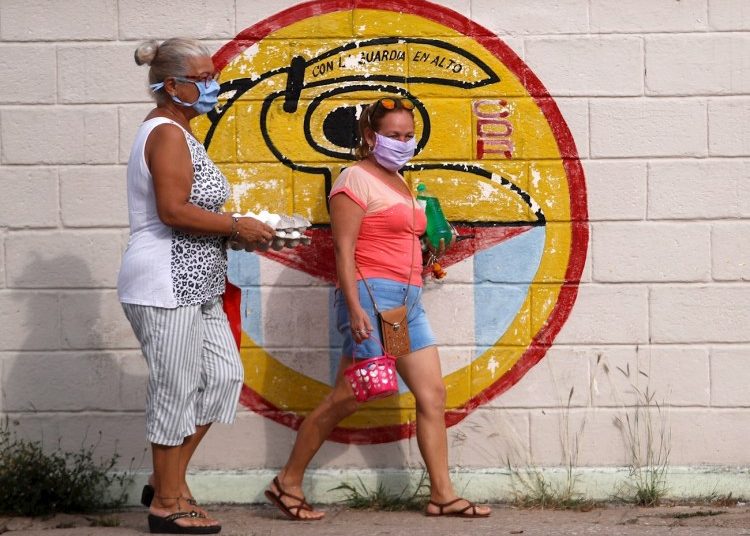On December 31, 2019, the World Health Organization (WHO) got the first coronavirus alert from Wuhan, China. Since then we have witnessed an uncontrolled and growing chain of infections and deaths. Remarkable mistakes have been confirmed in many national political managements of this unprecedented global crisis. Few countries have managed to avoid internal collapses. From an epidemiological point of view, Cuba is among the latter so far.
COVID-19 is an epidemiological contingency that brings non-contingent issues to the fore: inequalities, vulnerabilities, impossibilities to manage the uncertainty of the present and the future.
The disease is having a worse evolution in men due to factors related to their immune system and prevalence of respiratory diseases. However, international and social organizations have warned that the crisis has specific and more acute effects on women due to social and economic reasons and previous structural inequalities. Governments need to address this fact when designing and implementing measures to deal with the crisis and in the post-crisis.
The Cuban government and institutions are deploying huge material and organizational resources to manage this situation. Part of the citizenry also does it, individually and collectively. Every day, new solidarity ventures and joint ways of doing things transcend.
The challenges posed by COVID-19 are diverse and enormous. It is necessary to think each step and accurately direct each will, because the crisis will affect specific groups more dramatically.
This is a minimal request, to think about the present and justice for women and the most vulnerable groups in the collective house.
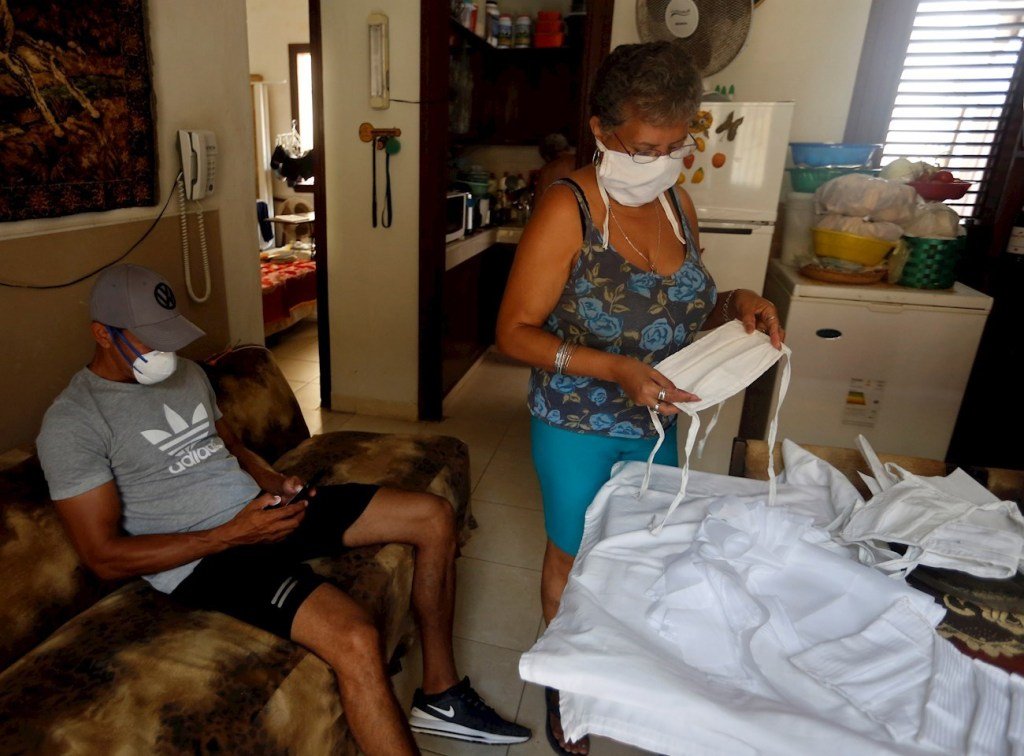
Incorporate those who are cared for into the political vocabulary and measures to face the crisis
By force, this crisis makes us think politically about what we don’t usually think about: the way in which society and people organize themselves to take care of others and themselves.
Those who are cared for are now more visible as the center of life because schools are closed, private childcare services are suspended, the need for care of the most vulnerable people due to age or health condition increase, difficulties in acquiring basic goods have increased and we have legitimate requirements to remain at home.
In Cuba, as in all parts of the world, women are the ones who carry out most of the caregiving work at home (cooking, cleaning, washing, going out for food, assisting with school homework, attending to minors and dependent people, etc.). That work is now increasing and it is urgent to think about how to redistribute it and manage that situation in collective and institutional ways.
Paid workers in the state sector have received salary protections during this pandemic in the event that they have to suspend their work activities to care for children of preschool, school age (up to 11 years) or special education. That is a protective measure of great benefit, which has been expanding its scope. But three preconceptions persist in its design and application:
- Discretionary institutional barriers to its application are occurring (managers who block the possibility of its operating in practice),
- It does not apply to those who must stop working to care for older adults in need of assistance,
- It does not consider women workers hired by the non-state sector.
Therefore, first, it is essential that the Ministry of Labor and Social Security compel absolute and strict compliance with the measures that benefit those who work, and especially those who request leaves of absence to care for minors.
Second, it is important that said institution consider extending the measure to paid women workers who must be responsible for the care of dependent elderly people. And third, as a society and institutionally we must think of policies that protect those who were hired in the private sector and now have no income or support to provide care.
So far, we are solving most of the caregiving through family management (unevenly distributed between men and women). It is important to include the issue on the political, social and communicational agenda (both official and unofficial). And innovate citizen efforts that support work in neighborhoods: volunteers to take care of children for a while, to shop, to cook collectively while other people carry out other functions, community lists of needs and offers to organize work and to respond in a collective and organized way. This would also be of benefit to those who have to continue working (in health, commerce, banks, police, etc.) so they can have support not only by their close family.
The secretary general of the Federation of Cuban Women (FMC) mentioned the matter in the Mesa Redonda television program. If it is a topic on the agenda, that same organization, together with the Commission for Childhood, Youth and Equal Rights for Women of the National Assembly, the Ministry of Labor and Social Security, and community projects and activists and intellectuals concerned about this matter, could create a space for dialogue to design strategies (communicative, organizational and institutional) aimed at facing the caregiving crisis that the pandemic is worsening. That would include, for example, working to dismantle common sense and the institutional custom of assuming that women are and should be the caregivers.
In some countries of the region, women’s organizations have requested the creation of intersectorial discussion spaces on caregiving to analyze available and operational strategies. In Cuba, we could try something similar to optimize the measures that already exist, implement others with the available resources, encourage citizens to redistribute caregiving in the home, and promote solidarity initiatives in this regard as well.
Talking about caregiving, thinking about caregiving, doing for caregiving.
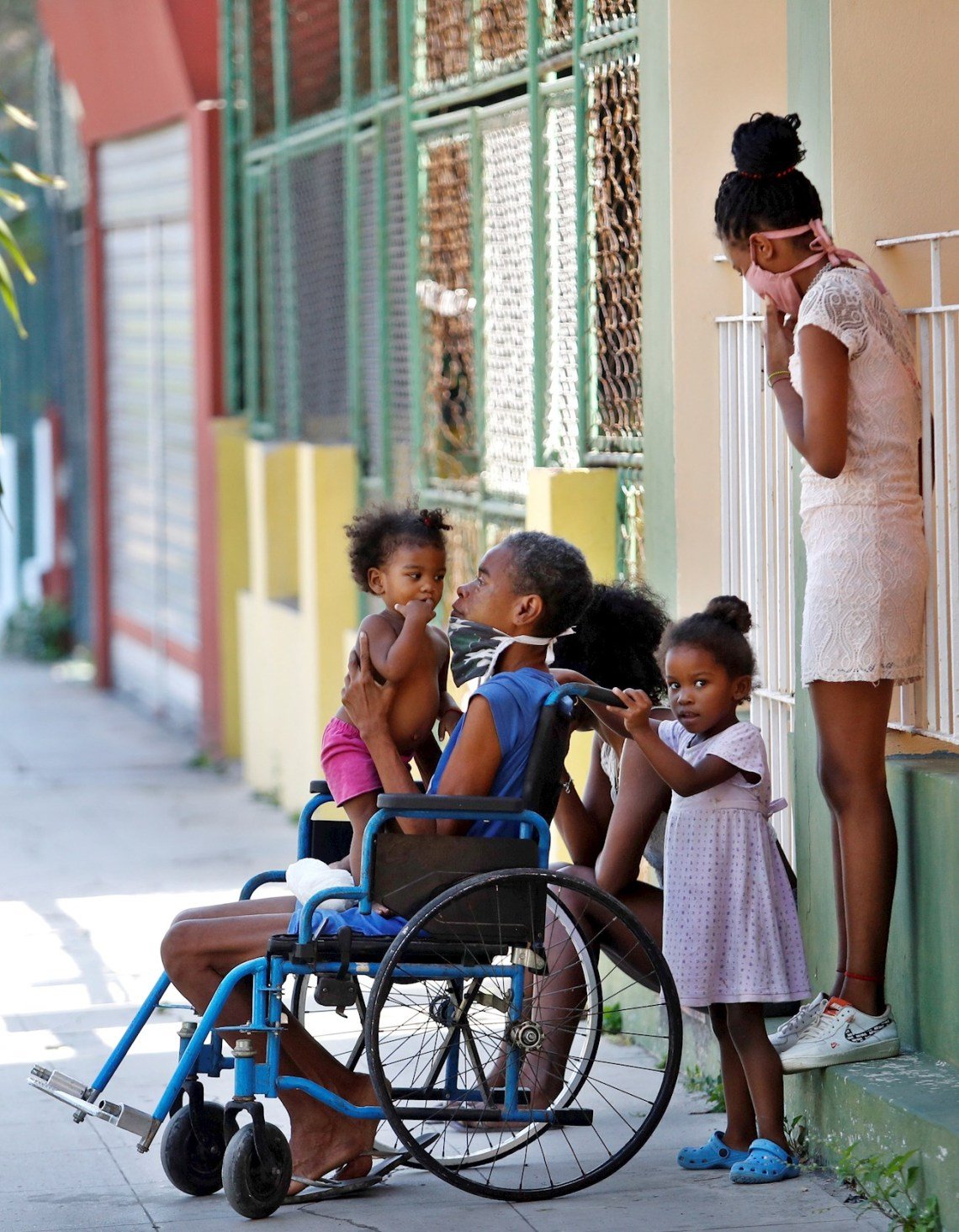
Take specific socio-economic protection measures for those who work in sectors that continue to offer services (and that are feminized)
Two of the labor sectors that remain active and that are in direct contact with citizens are health and services (cashiers, bank workers, etc.). In both there is an overrepresentation of women.
These people need to have, first, the greatest possible biosecurity protection, offered through the same institutions. The zeal and effort with which those working in the health sector are being protected in Cuba are known. We also know that the contagion rates are higher there, not surprisingly, due to the higher level of exposure to the virus. These measures are essential and must be sustainable and extensive to other highly vulnerable sectors, such as services and marketing in supermarket or bank networks.
It is also essential that those who work there have more support and backing in the organization and distribution of food that is being guaranteed in the communities, and in relation to caregiving, as stated before. In addition to rationed products, community organization―could the Committees for the Defense of the Revolution and community organizations take over?―could be strengthened to ensure other basic need products that are not distributed in neighborhood grocery stores and are essential.
It is also very necessary to include menstrual health and contraceptives for women in these networks, which tend to be in short supply, although they continue to be mandatory. In addition to the applause, let’s think about specific socio-economic support measures that contribute to sustaining their lives.
Design and implement urgent measures against violence against women and minors in domestic spaces
Immediately after mobility restrictions began around the world, there has been an appalling global increase in domestic violence, and especially violence against women and minors in domestic spaces.
All countries have shown an increase in calls to help lines for aid and guidance to deal with situations of gender violence.
China, Italy, Spain, France, Germany, Colombia, Ecuador, Argentina, Bolivia, Peru and others have communicated the alert: quarantines and mobility restrictions show that homes are not safe places for many women. Violence against them escalates in their homes and femicides continue.
Cuba arrives at the coronavirus crisis with more citizenry and political discussion on sexist violence. We know that the national dimension of the problem is considerable and comparable with global figures: while in the world approximately 35% of women have suffered, at some point in their lives, physical and/or sexual violence by a sentimental partner or sexual violence by someone other than their partner, in Cuba 39.6% of women declare to have been a victim of violence within intimate relationships at some point in their lives.
Therefore, although we don’t have the data, it is very likely that violence during this crisis will also increase. On April 16, a multiple feminicide transcended in the province of Las Tunas. The assailant murdered his ex-partner and the two daughters at home while mobility restrictions are being applied due to the pandemic.
Different countries have implemented emergency measures against the increase in sexist violence in homes: communication campaigns, specific call lines to attend to these cases, community support strategies, monitoring of those who have dangerous records or warnings for similar causes, expanding the capacity of shelters for women in situations of domestic violence, etc. In Cuba it is also necessary to think about it.
The Federation of Cuban Women has mentioned the issue and the need for the community to be alert in the face of cases of violence. The Attorney General’s Office has a call line for general complaints (of any kind) and the FMC has another, which operates during business hours. The Oscar Arnulfo Romero Center in Havana has maintained its counseling via email and, from civil society, the YoSíTeCreo en Cuba platform has enabled an accompaniment and emergency service.
The issue is on the agenda but more is needed and more institutional efforts are needed: agility of police services, reception shelters, greater efforts to raise public awareness, emergency protocols that can be distributed in the communities through social workers, guidance to those who carry out the screenings so that they report any indication regarding this, etc.

Regulate police action through strict institutional guidelines and protocols
Globally, one consequence of the pandemic is the securitization of public spaces. Although it has been considered a necessity to ensure compliance with mobility restriction measures, it poses important democratic challenges: the police forces can take disproportionate attributes or use excessive force.
On April 20, in the informal settlement of Indaya (Marianao), the alleged sexual abuse of two teenagers by police officers was reported. According to reports of the events, they were made to ride in the police car alleging that they could not be outside their homes at night. The teenage girls reported sexual abuse. Similar events have been reported in other countries, which have also alerted on cases of violence against citizens.
Reports have been made of other inappropriate police procedures: violent arrests without reason for non-compliance with pandemic-related procedures and ill-treatment in detention units. This contrasts with other testimonies of good practices that can also be verified.
Although control measures are necessary, it is essential to prepare emergency protocols and guidelines for police institutions, in order to avoid events such as the aforementioned or other similar ones.
The State of Exception has not been formally declared in the country and there is a legal vacuum regarding the scope and limits of police action. But to ensure compliance with the measures and fairness in the due process, it is necessary to publicize the institutional provisions and specify them in explicit regulations of legal validity.
This would also make it compulsory for the State apparatuses to respect compliance with the mobility restriction measures. Without criminal offenses or acts involving violence, police citations to citizens are not justified during the health emergency. Doing so is in contravention of institutional mandates and health and social recommendations. Furthermore, it fuels the insecurity and fear derived from the very situation of health crisis with an expanded danger of contagion.
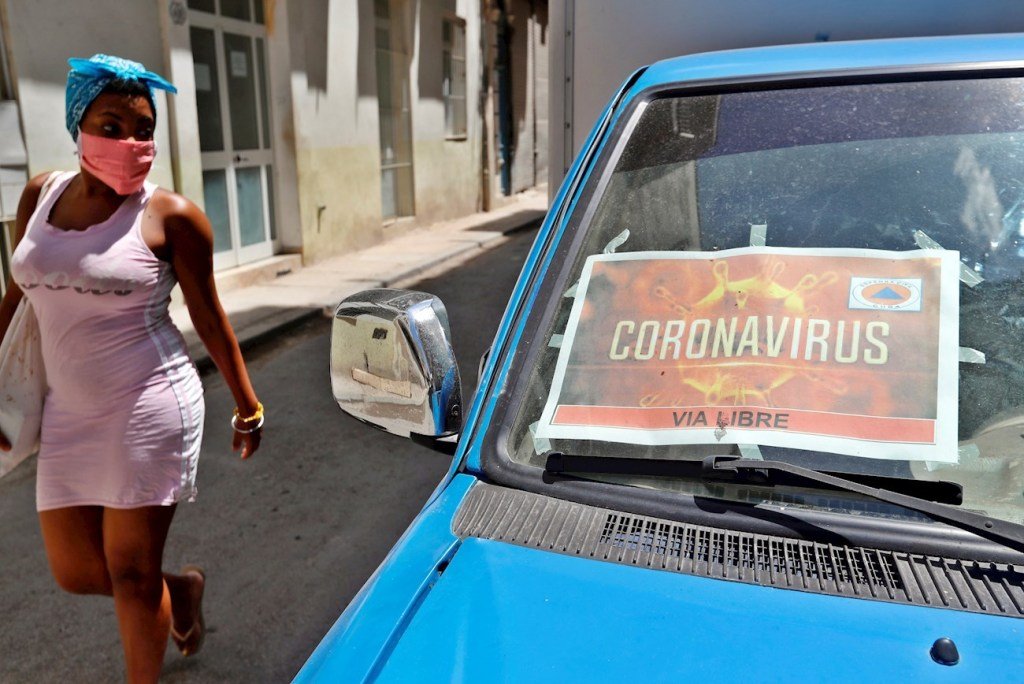
Ensure comprehensive guarantees for sexual and reproductive health rights, including the right to abortion, menstrual health and contraception
One of the effects of epidemiological crises is the restriction of women’s sexual and reproductive health rights. The services and products associated with it are often overlooked in times of crisis, especially since medical resources and services need to be redirected to other issues.
In Cuba, the Maternal and Child Care Program (PAMI) continues operating and ensuring the health of pregnant women. This is part of the systematic effort being made in the country to ensure the physical health of mothers. In this context, it is vital to continue guaranteeing the adaptations to make sure this is complied with, both physically and psychologically. It is desirable that pregnant women receive care at home or that appointments be scheduled so that there are no other persons waiting.
The anxiety levels of pregnant women can increase in these circumstances, due to fears of contagion in hospitals and during childbirth. Therefore, the media and primary healthcare institutions can collaborate in offering information and guidance to women in this situation.
In the national context, menstrual health services, voluntary terminations of pregnancy and access to contraception are of more concern. Additional efforts are needed to continue guaranteeing the right to abortion, contraceptive methods, and hygiene and menstrual health products during the pandemic. The health emergency will last a time still difficult to forecast and none of the above can be put on hold.
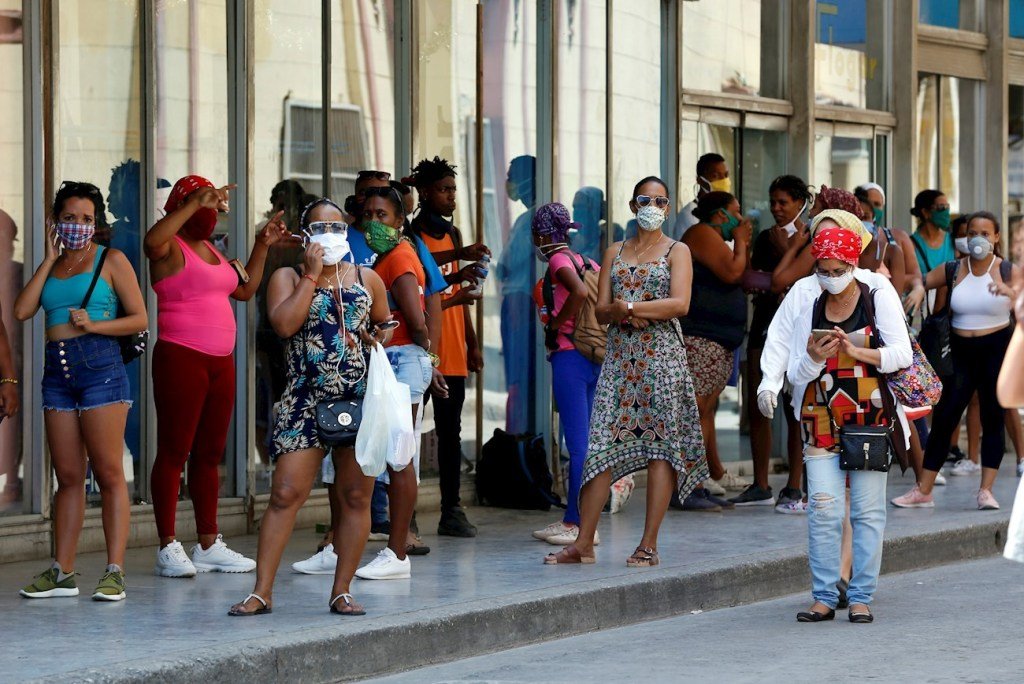
Protect those working in the private and informal sectors during the crisis and post-crisis, including paid domestic workers and caregivers
The low in tourism and the closure of a great deal of small and medium enterprises and private activities is affecting and will affect the non-state labor sector. Several economists have drawn attention to the fact that the crisis is hitting everyone equally, but the measures being taken do not similarly protect private workers.
Women are a minority in the non-state sector (35%) but, although updated figures are not available, it seems that the majority are not business owners, but hired or self-employed. In 2012, the last public figure, 67.7% of the total number of women workers in this sector were hired workers.
On the other hand, as in other countries, women in Cuba also carry out most of the informal work, although there are no clear figures on what proportion they represent. Of households, 48.4% are headed by women, but only 40% of them are accounted as “employed.” It is likely that at least a part of the rest must secure some income to live and do so in the informal sector, without their activity or associated labor rights being registered. Many of them have surely lost their income at the very beginning of the crisis.
Some academics are drawing up recommendations to protect hired, self-employed, and informal workers in this crisis.
Paid domestic workers occupy an important place in this panorama, the majority of whom work informally and, during quarantine, have had their income decreased or eliminated, or continue to work with greater risk of becoming infected due to their high exposure in direct links with the people they care for.
The gender dimension must go through all the measures taken during this period and also afterwards: loans with low or no interest rates for entrepreneurs or self-employed, strengthening labor rights in the private sector, incentives to formalize the registration of informal workers (including domestic workers), promoting employment among marginalized groups in labor markets (including trans women, etc.), are mandatory measures.
Perhaps the post-crisis is a good time to start thinking about guarantees for the rights of women workers recruited from the private sector in relation, for example, to maternity care or leave.

Implement and make transparent protection measures for the prison population
One of the persistent demands of different social and feminist organizations around the world is to attend to the prison population in an emergency: their hygienic-sanitary conditions, space, to avoid overcrowding, etc.
For example, organizations and groups in Ecuador, together with hundreds of people residing in that country and feminist organizations and human rights defenders in the region, published a Manifesto for the Release of women prisoners due to the current crisis. According to that document, 54.94% of the women incarcerated in the Andean country have committed crimes that did not involve the use of violence or social risk. Considering the emergency of the pandemic, there was a request for the release of women on the verge of serving sanctions, deprived of liberty for minor crimes, imprisoned for aborting, who live with their sons and daughters in prisons, among other situations.
At a global level, attention has also been drawn to the need to make public the emergency measures taken in prisons, to ensure the prevention and management of infections wherever they exist.
Different countries in the region, including Cuba, have suspended or limited prison visits as a preventive measure to prevent the spread of coronavirus; measures related to the sanitation of the food that families send, the biosafety of those who work there, active screenings and differentiated attention to groups considered vulnerable within the prison population, including pregnant women, have also been taken. So far, no cases of coronavirus have been reported officially among inmates, and the Ministry of the Interior has reported that it has as a priority the fulfillment of any measure that is necessary to prevent the entry of COVID-19 into Cuban prisons.
Indeed, the lives of these people must be ensured. Depending on the evolution of the epidemic, the release of those who are about to serve sentences or in situations that favor it could be considered. It is also necessary to systematically report the actions taken in these spaces, both in relation to the prevention of possible contagions that may come from outside and to the living conditions of those who remain there.
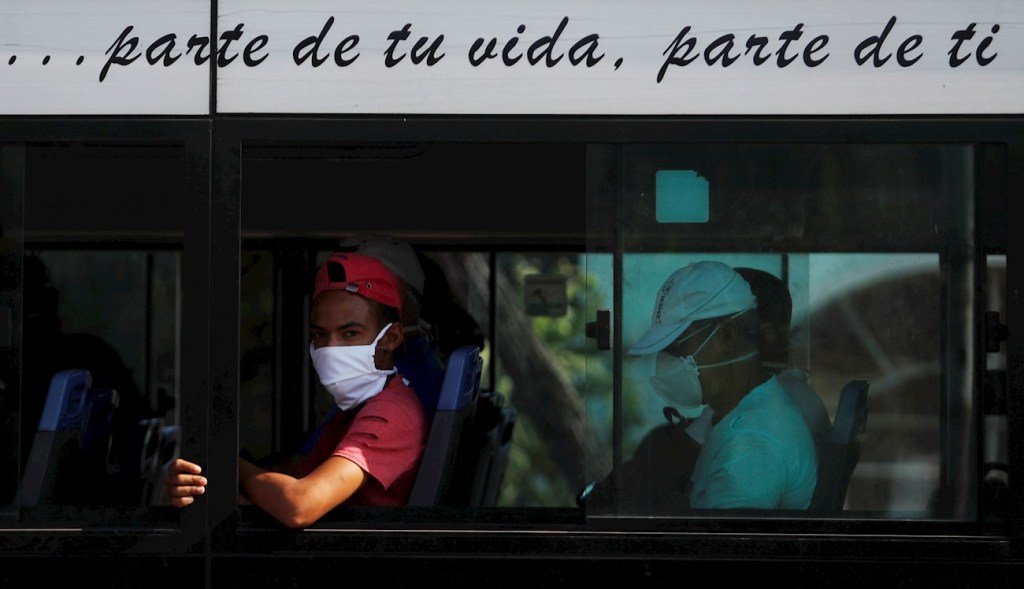
Managing the crisis with internal migrants in mind
One of the groups that may require special attention is that of internal migrants, specifically those who are in an irregular or highly precarious situation from the point of view of housing and economic resources. Not all internal migrants make up impoverished sectors. But one part does.
Those classified as “recent migrants” could be in a particularly vulnerable situation: people who have changed their place of residence in the short term (5 years, according to the assessments of national surveys). With less possibility of having consolidated networks or employment, this may be an especially fragile group.
Internal migration in Cuba is known to be feminized; in other words, more women are in this situation, according to the latest national survey on this subject, carried out in 2017. Of the almost 129,000 people who consider themselves recent migrants, women make up approximately 55%.
At the same time, the homes of internal migrants tend to be more numerous and the unemployment rate is higher. Specific protection for these groups should be on the agenda. Remember that many of these people may not have a ration book or formal registration in the consumer registration offices. In fact, regardless of whether or not they are part of impoverished groups, many migrants do not have a consumer record in their places of residence. It is necessary to think of mechanisms to ensure that they can have access to the products distributed by that means to mitigate the crisis.
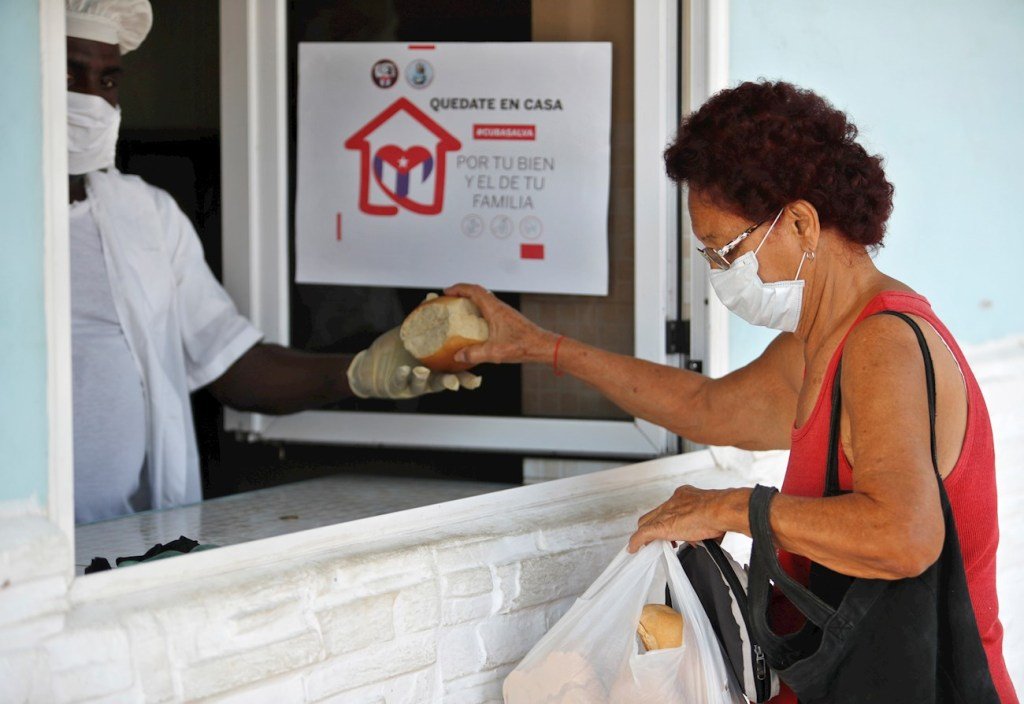
Mainstream all post-crisis measures with a gender perspective
Post-crisis measures need to have a full gender focus.
In economic terms, this crisis will be greater than that of 2008: a deep global recession, said the executive secretary of the United Nations Economic Commission for Latin America and the Caribbean (ECLAC).
According to this organization, it is expected that in Latin America the average of GDP will decrease 5.3%, unemployment will increase 3.4% and approximately 30 million people will join the poverty groups. All labor and social indicators will deteriorate further.
In Cuba, serious problems are also anticipated. ECLAC forecasts a 3.7% GDP decrease.
All the alternatives to face this situation must be thought of in a universal way and, also, taking into account the specific needs and conditions of the different social groups.
It is advisable to create intersectorial discussions to evaluate all programs (social and economic) in terms of gender, and also taking into account intra-gender diversity according to socioeconomic status, “race,” territory of origin, gender identity and age. The density of justice that we can imagine and ensure is at stake.
*This text was originally published in El Toque/Periodismo de Barrio. It is reproduced with the express authorization of the media and the author.

